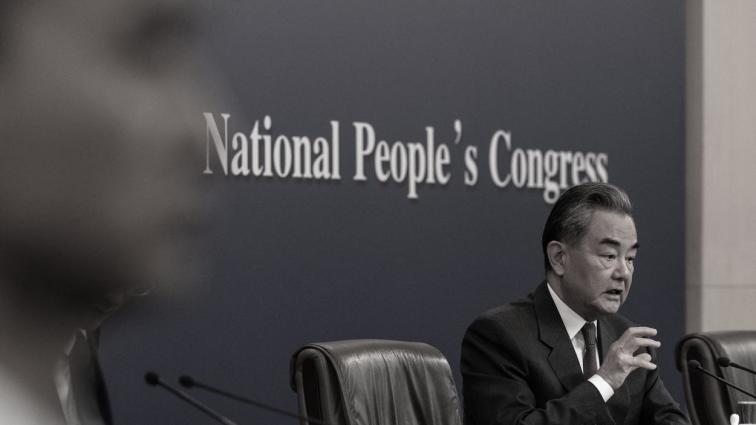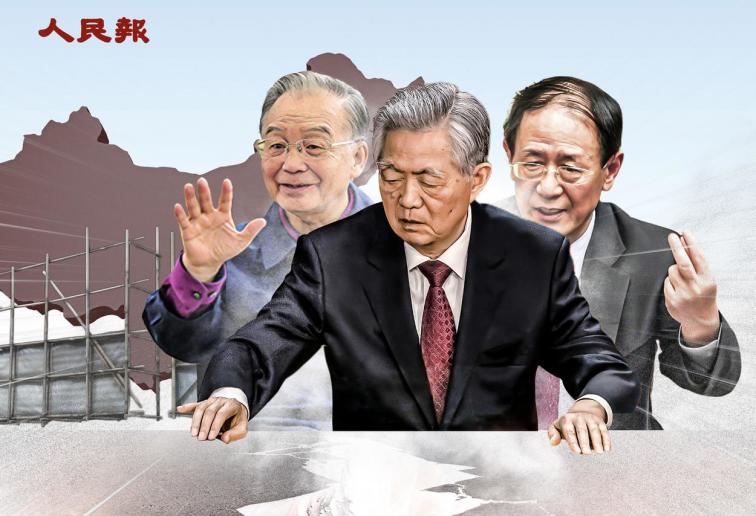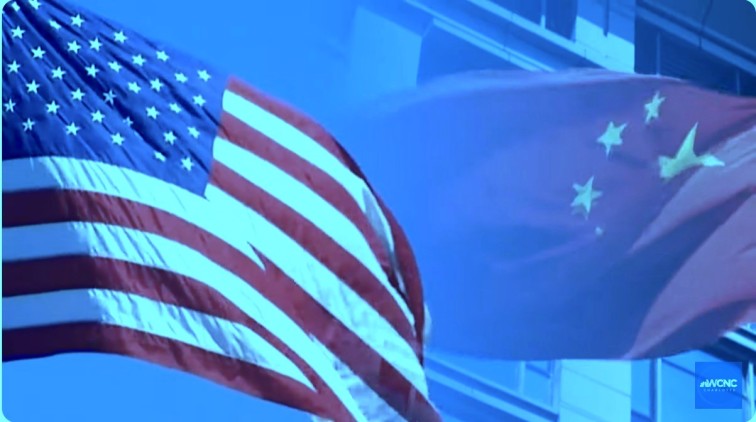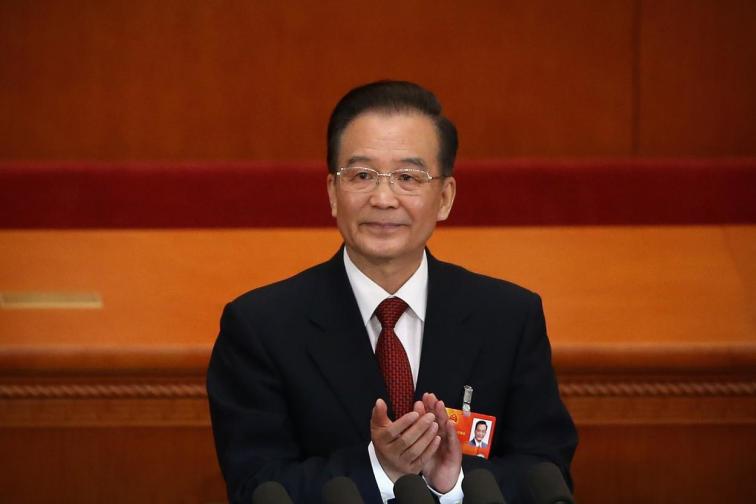On April 19, 2023, (from left) Wang Yi, Xi Jinping, and Qin Gang met with the visiting President of the Gabonese Republic (not pictured) in Beijing. (Ken Ishii-Pool/Getty Images)
[People News] On July 2, during the "13th China-EU High-Level Strategic Dialogue" in Brussels, Chinese Foreign Minister Wang Yi acknowledged in a meeting with the EU's High Representative for Foreign Affairs and Security Policy, Josep Borrell, that Beijing does not wish to see Russia defeated in the Ukraine war, fearing that the United States would then shift its full attention to China. However, when questioned about whether China is providing financial or military support to Russia, Wang Yi categorically denied it. Commentators noted that Wang Yi's unexpected admission was akin to dropping a bombshell.
According to the South China Morning Post, after a four-hour discussion with Borrell, who previously served as Estonia's Prime Minister, Wang Yi inadvertently disclosed a significant truth. He stated, "China does not want to see Russia fail in Ukraine." When asked why, he explained, "Because we do not want the United States to turn all its attention to China." His remarks took the EU officials by surprise, even though they had already suspected this conclusion.
The South China Morning Post reported that the atmosphere at the meeting was quite tense, with both sides engaging in a marathon discussion lasting over four hours. Wang Yi was said to have given Borrell "a few history lessons and sermons."
A commentary by André from Radio France Internationale suggested that whether Wang Yi's candid remarks were intentional or an accidental leak during the lengthy discussion, they certainly had a bombshell effect, shocking everyone in attendance.
When questioned about whether the Chinese Communist Party (CCP) is providing financial or military support to Russia, Wang Yi categorically denied it, reiterating a phrase he believes to be very honest: 'If Beijing were doing that, the conflict would have ended long ago.'
Nevertheless, although the CCP has never condemned Russia's invasion of Ukraine, there is considerable evidence suggesting that Beijing has supplied a significant amount of dual-use military and civilian materials to Russia. Recently, reports have surfaced indicating that Beijing is supplying laser weapon systems to Moscow.
In April of this year, Reuters reported that Ukrainian President Volodymyr Zelensky publicly accused the CCP for the first time of supplying weapons and gunpowder to Russia.
According to Deutsche Welle, Oleh Ivashchenko, the head of Ukraine's Foreign Intelligence Service, stated in an interview with the Ukrainian National News Agency (Ukrinform) on May 26: 'There is information indicating that China is providing machine tools, special chemicals, gunpowder, and parts to Russia's defence manufacturing industry.' The Ukrainian side claims to have identified 20 Russian factories involved in this supply chain.
Ivashchenko claimed that Ukrainian intelligence has uncovered at least five instances of cooperation between Russia and China in the aviation sector from 2024 to 2025, which includes the supply of equipment, spare parts, and documentation. Additionally, there are six cases of 'large shipments' of special chemicals, although the Ukrainian government did not provide further details on these shipments.
Ivashchenko further noted: 'By early 2025, 80% of the critical electronic components for Russian drones will come from China.' The CCP's Ministry of Foreign Affairs has not responded to this statement.
Former German Foreign Minister Annalena Baerbock met with Wang Yi in December last year during her visit to China, where she openly remarked at a press conference, "Drones from Chinese factories and the North Korean army are undermining peace in Europe and harming Europe's core interests."
Wang Yi's trip to Europe was initially aimed at preparing for the China-Europe 50th anniversary summit scheduled to take place in Beijing three weeks later. The Chinese Communist Party is seeking to strengthen ties with Europe to counter the United States, and Wang Yi's visit is viewed as a new phase of a "charm offensive" directed at the European Union.
However, tensions between the Chinese Communist Party and the European Union over trade have been escalating, particularly regarding the CCP's position on the Russia-Ukraine war. The EU is insisting that Beijing clarify its stance and avoid a neutral position.
Wang Yi's controversies in Europe led to Chinese Foreign Ministry spokesperson Mao Ning having to address the situation. On the afternoon of July 4, during a routine press conference, Mao Ning was questioned by a reporter from Spain's 'El País': "Reports suggest that 'China does not want to see Russia fail in the Russia-Ukraine conflict, fearing that the U.S. will redirect its attention to China.' What is the spokesperson's comment on this?"
Mao Ning responded, "China's position on the Ukraine crisis has been consistent, advocating for peace and promoting dialogue." She further stated, "The prolonged nature of the Ukraine crisis does not benefit any party. We support a political resolution to the crisis through diplomatic efforts as soon as possible and are willing to continue playing a constructive role in this regard in collaboration with the international community, based on the willingness of the parties involved." This statement starkly contrasts with Wang Yi's earlier candid remarks, leading to a public contradiction of her own leader. △
(First published by People News)











News magazine bootstrap themes!
I like this themes, fast loading and look profesional
Thank you Carlos!
You're welcome!
Please support me with give positive rating!
Yes Sure!